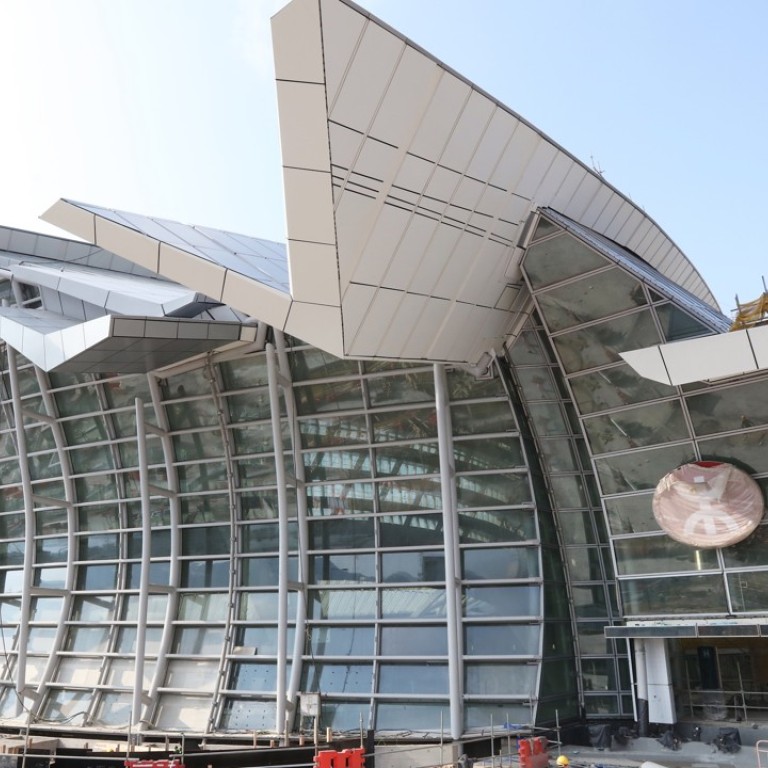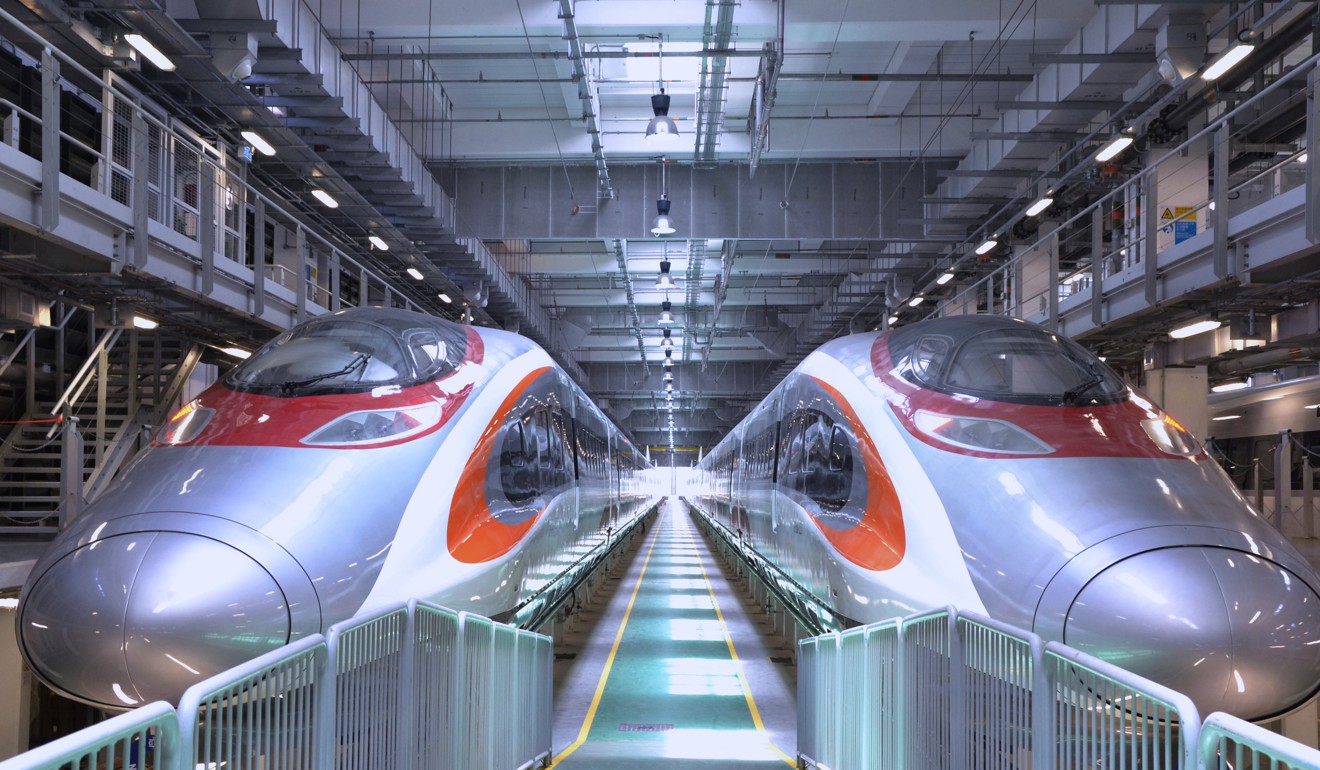
Is Hong Kong ‘ceding’ land to mainland China? Fears grow after revelation joint checkpoint at rail terminus will not operate under lease
Hong Kong’s transport chief says once bill is passed, a ‘contract’ between both governments will provide flexible way to implement arrangement
An area for mainland Chinese officials to enforce national laws at a rail terminus in Hong Kong will not operate under a lease agreement, as previously thought, sparking questions on whether the city was “ceding” land to the central government.
Secretary for Transport and Housing Frank Chan Fan told lawmakers on Tuesday there would be a contract governing Beijing’s use of the area, but suggested it would not have a lease clause.
“The acquisition of the right to use areas of the mainland port area, including conditions such as duration and fees ... will be provided in a contract to be entered into by the two sides,” Chan said.
“This is a very flexible way of dealing with the matter. We should not haggle over whether there will be a lease.”
We should not haggle over whether there will be a lease ... When we reach an agreement, we will announce it to the public
Chan was speaking at a Legislative Council meeting to discuss the government bill on the controversial arrangement that mainland Chinese police and customs officials would handle immigration for travellers in both directions in one section of the West Kowloon terminus.
The legality of the co-location agreement was fiercely debated last year with legal scholars and pro-democracy lawmakers insisting it contravened the Basic Law, Hong Kong’s mini-constitution, which states no mainland Chinese law shall be applied in the city except for those relating to defence, foreign affairs and “other matters outside the limits” of Hong Kong’s autonomy.
But last December, China’s top legislative body, the National People’s Congress Standing Committee, approved the arrangement following an agreement between Chief Executive Carrie Lam Cheng Yuet-ngor and Guangdong provincial governor Ma Xingrui.
The Hong Kong government then gazetted the bill in January, and said it hoped Legco – where pro-establishment lawmakers are in the majority – would vet and push through the draft legislation by July.
Six things to know about Hong Kong’s controversial ‘co-location’ joint checkpoint scheme
Members of Lam’s administration had argued that as the “mainland port area” was leased to authorities from across the border, it would be regarded as outside the city’s boundary. They gave the impression the arrangement would be similar to one currently in place at the Shenzhen Bay Port, where the Hong Kong government pays around HK$8 million a year in rent to run border checks.
But Civic Party lawmaker Jeremy Tam Man-ho pointed out the Shenzhen Bay Port Hong Kong Port Area Ordinance clearly stated the agreement was a lease and questioned why this bill did not do likewise.

“Why does this bill fail to specify that this is a lease? Does it mean that even without a lease, this law can be effective?” Tam asked. Regarding Chan’s comments, Tam said he was shocked and insisted Chan clarify whether there would be a lease.
But Chan only said the government was in talks with mainland Chinese authorities on the terms of use and proposed fees.
“When we reach an agreement, we will announce it to the public.”
After the meeting, Tam said that if the arrangement did not function under a lease, it meant the designated area was “ceded” to the mainland. And if lawmakers passed the bill as it stood, “the Hong Kong government could stipulate any terms it liked, such as a HK$1 rent or zero fees without the need for Legco’s approval,” he warned.
Controversial joint checkpoint plan approved for high-speed rail link as Hong Kong officials dismiss concerns over legality
The session began in chaos with the first 90 minutes dominated by pro-democracy lawmakers protesting through filibustering.
An adjournment was forced when Civic Party’s Tanya Chan and People Power’s Raymond Chan Chi-chuen stormed the stage. When the session resumed, the stage was again stormed, this time by newly elected lawmaker Au Nok-hin who was tackled to the ground by two security guards.
Others from Au’s camp left their seats to confront committee chairwoman Regina Ip Lau Suk-yee on why they were not allowed to raise their points.
Ip said afterwards she regretted what had happened, but Charles Mok, who represents the IT sector, accused Ip of stripping the pan-democrats of their right to scrutinise the bill. Mok vowed to continue to filibuster.


